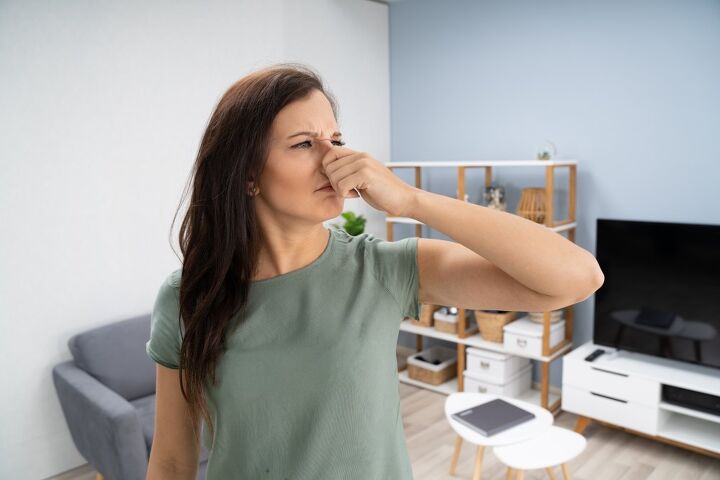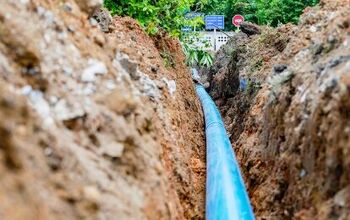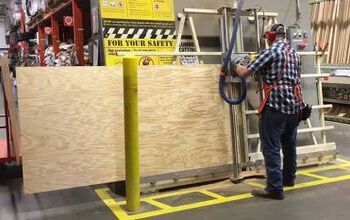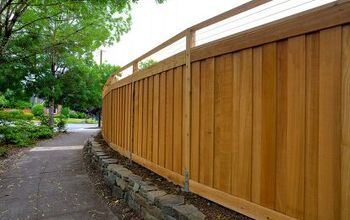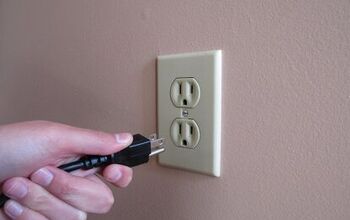House Smells Like Potting Soil? (Possible Causes & Fixes)

We all want our homes to look and feel fresh and free of foul odors. So if you notice there’s a potting soil smell around your house, you’ll undoubtedly want to know the cause and how to get rid of it. Anyone who has experienced the smell knows just how unsettling it is, thus the need for you to know how to get rid of it.
Poor drainage, lack of ventilation, crawl spaces in the house, the soil under the house, and overwatering indoor plants are the leading culprits for the potting soil smell. Poorly decomposed organic matter such as humus in your houseplants can also be a cause.
When most people notice a potting soil odor in their houses, the first thing that comes to mind is to grab the air freshener to try making things better. However, such interventions only offer temporary relief. The smell won’t go away until you discover its root cause.
Attacking the source of the smell is the surefire way to banish it and make your home feel comfortable again. However, the potting soil odor could indicate toxins in the house, thus the need to move with speed to get rid of it. This guide will examine some of the causes of the potting soil smell in your house and how to prevent it.
Do You Need Foundation Drainage Installation or Replacement?
Get free, zero-commitment quotes from pro contractors near you.

How Does Potting Soil Smell Like?
According to the Natural Resources Conservation Service, fresh soil should have an inviting earthy smell. A perfect example is the smell of soil after it rains. However, the same cannot be said of potting soil smell, because it gives an unpleasant odor with traces of sulfur and ammonia.
Causes of the Potting Soil Smell
The presence of the smell of potting soil in your house is indicative of several issues. Here are some of the causes of the condition.
Poor Ventilation
It’s a no-brainer that a poorly ventilated house will have a musty smell. When this happens, your house will feel not only unpleasant but also less welcoming. If the unpleasant potting soil odor is caused by poor ventilation, all you’ll need to do is improve air circulation in your home.
The more you can get fresh air circulating inside your home, the better. Proper ventilation gives your house a homely feel by removing the potting soil smell, besides making the space less vulnerable to mold and mildew.
Proper ventilation doesn’t get rid of foul odors alone but also helps to keep moisture in the air at a minimum. When ventilating your home, special attention should be paid to the bathrooms, the kitchen, and the basement. Consider using an extractor fan when cooking and showering. It’s equally advisable to avoid drying clothes on radiators.
Presence of Crawl Spaces in Your Home
Whether you have houseplants or not, the presence of crawl spaces in your home can lead to a potting soil odor. Crawl spaces allow foundation and ground moisture to enter the building, thus, giving it a potting soil or even musty smell.
You can prevent the odor by installing vapor barriers in your crawl space foundation. This will prevent vapor from entering your crawl space and, subsequently, the building. Better still, consider coupling the crawl space vapor barrier with a waterproofing system.
By barring water and moisture from the crawl space, you’ll prevent not only the potting soil smell but also mold, rust, rot, rodents, and insects. In addition, crawl space vapor barriers are designed to stop the flow of rising vapor. This turns the crawl space foundation into a semi-conditioned zone with temperatures similar to the house above the space. Thus, it helps with temperature regulation when it gets cold.
Mold
If you live in a humid area, you’ve undoubtedly experienced mold growth. However, if your home’s walls, roof, floors, upholstery, ceiling, or basement are exposed to moisture, it provides a healthy environment for mold and mildew to thrive.
Moisture seepage raises humidity levels, thus allowing mold to thrive. Although not all types of mold produce the potting soil odor, some do. Besides, water seepage and the subsequent mold causes wood to rot, thus causing the potting soil to smell.
If you discover that the odor in your house is caused by mold, you should move with speed to get rid of it. There are several ways to eliminate mold, but always ensure you take preventive measures to ensure no future recurrence. For instance, using a dehumidifier can help maintain the recommended humidity levels, hence curbing mold growth.
When tackling mold, it’s best to be extra cautious. Some molds release toxins that are harmful to the respiratory system. Individuals with allergies and children are particularly vulnerable to mold infestation. Hence, it’s advisable to call a mold removal service to handle the job.
Bacteria
Your home could have a potting soil odor due to the presence of bacteria. Humid conditions cause bacteria to thrive on upholstery, furniture, walls, paint, and other parts of the house. As a result, some bacteria not only pose a health risk to your household but also emit foul smells.
Maintaining the recommended humidity levels in your house is a sure-fire tactic to prevent bacteria infestation. Likewise, disinfect your home and everything therein regularly to prevent infestations. If the cause of the potting soil smell is bacteria, it will go away.
Soil Under The House
Dirt can cause foul odors if your house has an unsealed crawl space with exposed soil as the flooring. Over time, the organic material that makes up the soil will decompose naturally. The process produces the potting soil odor.
Besides, the exposure of the soil to moisture creates dampness in the crawl space. Vapor from the soil will pervade upwards and cause dampness and a foul odor in your house. If you buy a house in a high-humidity area, the first thing to do is ensure that the crawl space is sealed using concrete. This way, the soil under your house won’t come into contact with moisture and cause a foul odor.
Poor Drainage
If you have potted plants in your house, poor drainage will cause a foul smell around the house. If the soil you use is waterlogged, air won’t reach the plants’ root area. In addition, the poor circulation of oxygen in the soil causes ethylene and carbon dioxide to gather, thus causing a foul smell.
The primary cause of poor drainage is overwatering houseplants. Besides, compacted soil can also cause poor drainage. If the soil is tightly packed, there will be insufficient water and air circulation in the soil you use for your houseplants. Compacted soil also has low oxygen levels and allows anaerobic bacteria to thrive. The bacteria produce foul potting soil odor.
To keep the odor at bay, it’s best to improve the soil’s drainage. The easiest way to do so is by breaking up the soil by adding nutrients, organic matter, or even some sand. When growing houseplants, it’s best to avoid clay soil due to its poor drainage.
Poor drainage can also be controlled by watering your houseplants appropriately. Ensure that the water you use is about a quarter of the pot’s size. Also, do not water your houseplants if the soil of the drainage holes feels damp. Keep in mind that evaporation is much slower indoors, hence the need for controlled watering.
Inadequate Sunlight
Your houseplants rarely get exposed to direct sunlight, and this could also be a leading cause of the potting soil odor. Although not all houseplants need direct sunlight, the same cannot be said of the soil on which they grow.
Soil kept in a cool, dark place without getting exposed to direct sunlight rarely dries out. Unfortunately, this provides a healthy breeding ground for mold and mildew, which are among the leading causes of potting soil odor. Hence, it’s essential to allow the soil that your houseplants grow to air for a couple of hours every week.
Poor-Quality Soil for Houseplants
Houseplants tend to be hardy, which is why they can thrive indoors in the first place. Nonetheless, it’s best to ensure that the plants grow in high-quality soil. According to gardening experts, potting soil should be a mixture of different soil types to ensure optimum drainage and aeration.
If you take soil from the garden and use it to grow your houseplants, the chances are that you will introduce molds, mildews, and fungal spores into your house. These can emit foul smells, including the potting soil odor. If you notice the odor and realize the soil on which your houseplants grow is white or green, it means the soil is infected.
Before growing houseplants, ensure you get soil from reliable sources. Most gardening stores sell soil that is fit for growing houseplants. If you have to get soil from your garden, ensure it’s free of fungal spores, mold, and mildew before bringing it into your house.
Do You Need Foundation Drainage Installation or Replacement?
Get free, zero-commitment quotes from pro contractors near you.

Final Thoughts
The potting soil odor is a sign that something isn’t right. In addition, consider your home. Typically, the odor points to a more significant underlying issue that needs to be addressed before it’s too late. This could be mold and mildew infestation, water damage, or even poor ventilation.
Related Articles

We are a team of passionate homeowners, home improvement pros, and DIY enthusiasts who enjoy sharing home improvement, housekeeping, decorating, and more with other homeowners! Whether you're looking for a step-by-step guide on fixing an appliance or the cost of installing a fence, we've here to help.
More by Upgraded Home Team



